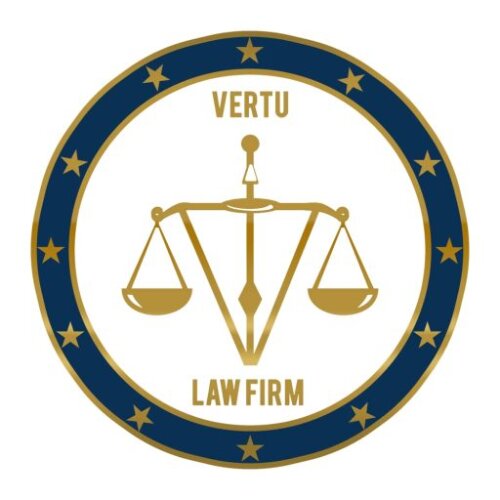Best International Trade Law Lawyers in Lubumbashi
Share your needs with us, get contacted by law firms.
Free. Takes 2 min.
List of the best lawyers in Lubumbashi, DR Congo
About International Trade Law in Lubumbashi, DR Congo
International Trade Law in Lubumbashi, DR Congo, is shaped by a mixture of local regulatory measures and international agreements, reflecting the city’s role as a commercial hub in the Katanga region. Given its strategic location near the Zambian border and its rich mineral resources, Lubumbashi plays a crucial part in international trade, especially in mining exports. The legal framework governing international trade here includes regulations on import-export procedures, customs duties, tariffs, trade compliance standards, and intellectual property rights.
Why You May Need a Lawyer
Individuals and businesses may need legal assistance in International Trade Law for various reasons, including:
- Navigating complex import and export regulations and complying with local and international trade laws.
- Drafting and reviewing international trade contracts to ensure comprehensiveness and compliance.
- Resolving disputes arising from international trade transactions or contracts.
- Assisting in customs clearance issues to avoid delays and penalties.
- Advising on trade compliance, including sanctions and embargoes, to prevent legal complications.
- Protecting intellectual property rights and addressing potential violations in international markets.
Local Laws Overview
Key aspects of local laws relevant to International Trade Law in Lubumbashi include:
- Customs and Tariffs: Regulations involving tariffs, duties, and customs procedures require careful navigation to ensure compliance.
- Export Control: Strict control measures on exporting raw materials, especially minerals, require adherence to local and international standards.
- Trade Agreements: DR Congo is a part of several trade agreements, which can influence trade terms and should be considered in business transactions.
- Employment Law: Rules and regulations around employing foreign workers might impact international trade operations.
- Dispute Resolution: Legal channels for resolving trade disputes include local courts and, where applicable, international arbitration.
Frequently Asked Questions
What are the primary challenges businesses face in international trade law in Lubumbashi?
Common challenges include navigating complex regulatory environments, managing customs processes, and ensuring compliance with both local and international standards.
Is it necessary to have a local partner for international trade in Lubumbashi?
While not strictly necessary, having a local partner can be beneficial for navigating regulatory processes and cultural nuances in the local market.
How can I resolve trade disputes in Lubumbashi?
Trade disputes can be resolved through negotiation, mediation, local courts, or international arbitration, depending on the contract terms and the parties involved.
What documentation is required for import/export activities?
Typical documentation includes invoices, bills of lading, export/import licenses, and certificates of origin, among other paperwork required by customs authorities.
Are there specific restrictions on the types of goods I can trade?
Yes, certain goods are restricted or require special permits to trade, particularly those related to mining and raw materials, due to their strategic importance.
How can international trade contracts be legally enforced in Lubumbashi?
Contracts can be enforced through local courts, provided they adhere to national laws, or through international arbitration if so specified in the contract terms.
What role do trade agreements play in Lubumbashi's international trade?
Trade agreements can influence tariff rates, import/export quotas, and set frameworks for dispute resolution, playing a significant role in trade policies and practices.
Do I need a customs broker for my trade activities?
Employing a customs broker can facilitate smoother customs clearance processes by ensuring compliance with local customs regulations.
How are trade tariffs determined in Lubumbashi?
Tariffs are determined based on national laws and international agreements, taking into account the type of goods and their classification.
Are there any incentives for foreign investors engaging in international trade?
The government may offer incentives such as tax exemptions or reductions to foreign investors as part of initiatives to encourage foreign trade and investment.
Additional Resources
For those seeking more information, consider reaching out to the following resources:
- Ministry of Commerce: Provides guidelines and current regulations on international trade in DR Congo.
- Congolese Customs Authority: Offers assistance with customs regulations and import/export procedures.
- Local Chambers of Commerce: Assist in networking and understanding local business practices and compliance.
- Legal Aid Clinics: Provide pro bono legal advice and resources for individuals and businesses with limited funds.
Next Steps
If you need legal assistance in international trade law, consider the following steps:
- Consult with a legal professional specializing in international trade law to assess your situation and understand your obligations and rights.
- Gather all relevant documents and information related to your trade activities to provide to your lawyer.
- Develop a compliance strategy to ensure ongoing adherence to local and international trade regulations.
- Consider attending seminars or workshops conducted by trade associations for continued learning and networking opportunities.
Lawzana helps you find the best lawyers and law firms in Lubumbashi through a curated and pre-screened list of qualified legal professionals. Our platform offers rankings and detailed profiles of attorneys and law firms, allowing you to compare based on practice areas, including International Trade Law, experience, and client feedback.
Each profile includes a description of the firm's areas of practice, client reviews, team members and partners, year of establishment, spoken languages, office locations, contact information, social media presence, and any published articles or resources. Most firms on our platform speak English and are experienced in both local and international legal matters.
Get a quote from top-rated law firms in Lubumbashi, DR Congo — quickly, securely, and without unnecessary hassle.
Disclaimer:
The information provided on this page is for general informational purposes only and does not constitute legal advice. While we strive to ensure the accuracy and relevance of the content, legal information may change over time, and interpretations of the law can vary. You should always consult with a qualified legal professional for advice specific to your situation.
We disclaim all liability for actions taken or not taken based on the content of this page. If you believe any information is incorrect or outdated, please contact us, and we will review and update it where appropriate.












